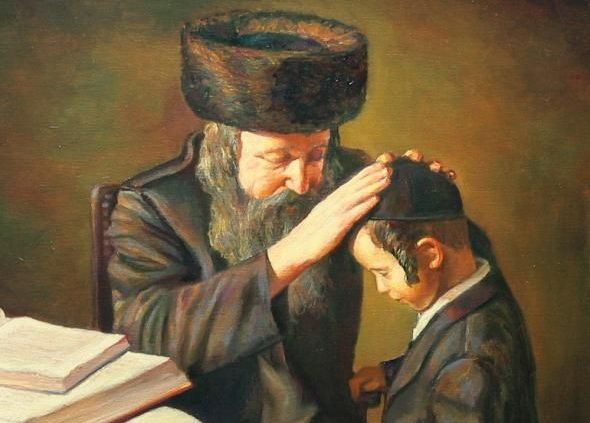Moshe was eighty years old.
He was commanded to become the leader of the Jewish Nation. G-d determined that he had what it takes to be the greatest Jewish leader of all times. Yet, he insisted on the approval of his older brother Aharon.
Let’s take a closer look. Aharon was only three years older then Moshe. Moshe hadn’t seen his brother or heard from him in sixty years. Even during his first twenty years in Egypt Moshe hadn’t grown up with Aharon being the big brother. As a matter of fact, Moshe hardly knew Aharon at all! Yet, to Moshe, Aharon’s approval was a deal breaker. “If my big brother Aharon is happy with this, I go ahead – if not,” said Moshe, “I’m very happy retiring as a shepherd in Midian.”
As G-d predicted, not only did Aharon agree; he came out to greet Moshe in the desert. Not only was there no jealousy or envy on Aharon’s part, there was a deep simcha! Aharon was actually excited for his eighty-year-old little brother Moshe. His warm accepting smile in the desert is just what Moshe was waiting for.
It was this smile, Aharon’s genuine simcha and nachas, which encouraged Moshe to become Moshe. When you come right down to it, it was Aharon’s smile that created the Jewish people. Even at eighty years of age, Moshe needed Aharon to have nachas from him.
Why did Moshe need Aharon’s smile? He had just received a seven-day prophecy from G-d himself! He had just witnessed a miraculous burning bush! There were no obligations, Halachic or otherwise, that Moshe had toward his long lost brother. So why was this so important?
Moshe didn’t need Aharon’s approval; he had G-d’s approval! He didn’t need Aharon to organize an army or to do door to door solicitations. He needed Aharon’s moral support, his nachas and his smile. “If I’m going to lead a couple of million Jews from slavery to freedom – I need someone to have a little nachas!”
All of us need someone to have a little nachas from us. It is a basic human need that we all have. No matter what our age or our standing in life, we yearn for a father, mother, wife, husband, child, grandchild, friend, Rebbe, talmid – almost anybody – to have nachas and be proud of us. When someone is having nachas, when someone is b’simcha over our accomplishments, we gain the strength to continue. If you’ve lost a parent or a close teacher you will have felt the pain of the nachas vacuum. Who is happy for me? Who is proud of me? Even a man as great and as mature as Moshe needed Aharon, his big brother, to smile. He needed the pat on the back from Aharon that says “Not only don’t I mind that G-d appointed you and not me, but I’m happy for you, I’m proud of you, Moshe.” This empowered Moshe.
The Medrash says that Aharon himself didn’t realize how important his smile was; if he had realized it, says the Medrash, he would have brought an entire orchestra to greet Moshe!
Why is it so important to be mesameach a choson and kalla? I remember almost thirty years ago announcing my wedding engagement to my friends. How I yearned for their smile, their outburst of song, and how I craved their simcha. At a Jewish wedding there is only one focus: being happy for the choson and kalla. That is the purpose of the wedding party and that is the mitzvah to attend. At a wedding we all empower the young couple to take on life together. They can get through the big challenges because they know we are all rooting for them.
And that is why we must go to the plays and performances of our children and grandchildren! The most meaningful thing that we can do for our children is to let them know they are giving us pure joy and that we are so proud to be their parents.
The Torah teaches us to fill the needs of an orphan. We think about how sad it is that this orphaned child has no one to feed them, to clothe them, to take them to the football game. It’s much worse than that! An orphan has no one to applaud when he takes his first step. An orphan has no one that gets ecstatic when he comes home from school with a hundred on a test. An orphan has no one to cry tears of joy when he or she has the lead role in the school play. An orphan has no one to have nachas from him or her.
Aharon introduced us to a kindness that we can all perform. It doesn’t cost money and it hardly takes any time—just by having a little nachas from the people around us, we can change their lives.



0 Comments